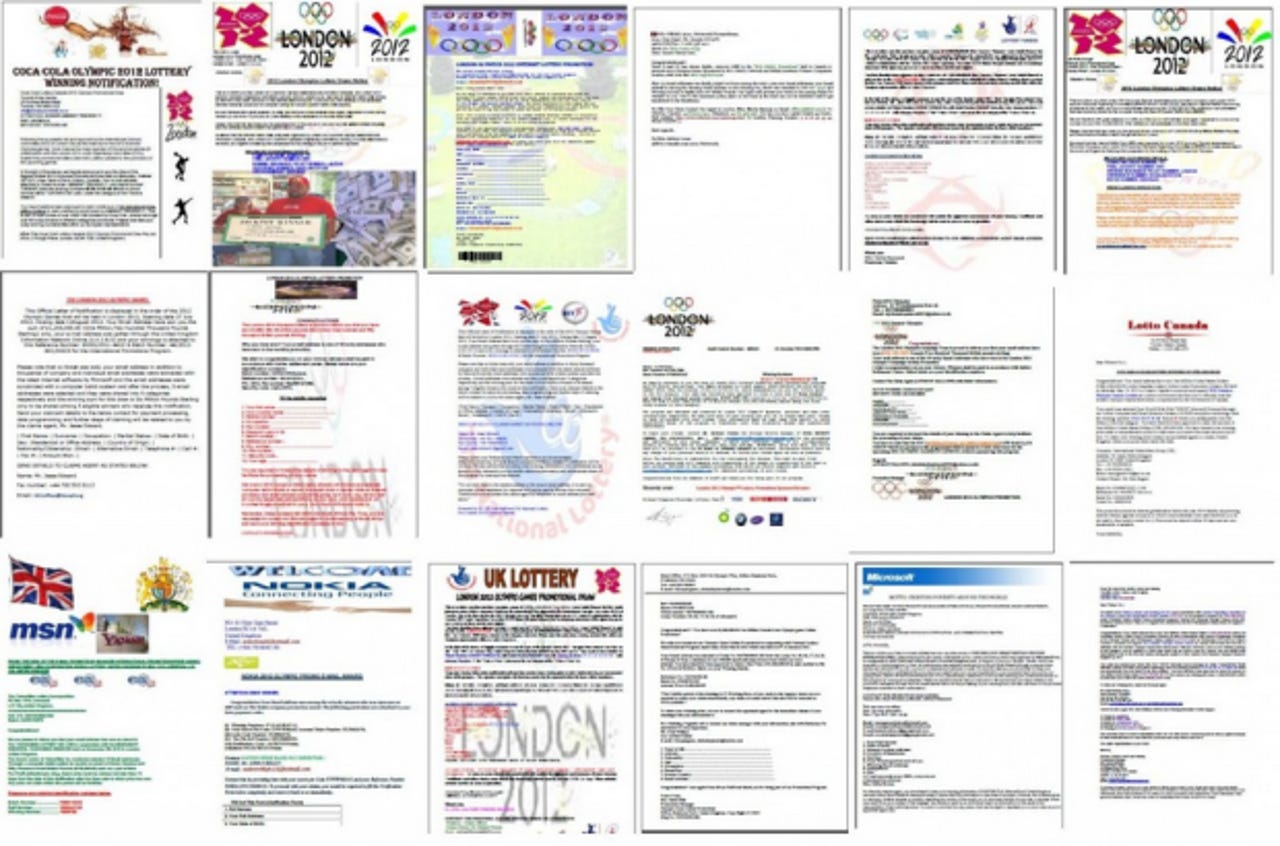Warning: Scams surrounding 2012 Olympics have already begun


The 2012 Summer Olympics in London begin on July 27. That's over a week away but scammers are already preparing and testing the best ways to leverage the event for their own purposes. In fact, security researchers have already started collecting spam samples for this year's Games.
McAfee on Friday warned users to be vigilant of online scams for the 2012 Olympics. As you can see in the screenshot above, the company has collected a number of related spam messages which try to collect user data. The spam messages reference brands such as Coca Cola, Microsoft, and Nokia.
The e-mails are typically disguised as lottery and sweepstakes promotions, and claim to offer cash prizes in exchange for personal details. They inform the recipients that they have won a substantial amount of money and to contact the lottery manager. The victims are then asked to pay "processing fees" or "transfer charges" for the winnings, which of course don't exist.
In some cases, the scammers even go as to ask for a copy of your passport, national ID, or driver's license. Once they have your personal information, they can plan out further identity theft activities.
While the attacks come less than two weeks before the 2012 Olympics, this is just the start. The closer we get to the opening ceremonies, and even during the Games, expect to see a lot more such scams and spam.
Massive events like the Olympic Games have become popular ways for cybercriminals to make a quick buck. As sporting events become more and more tied to the Internet, the problem is only further exacerbated. As such, you can expect this year's Olympics to be the most scammed one yet.
See also:
- Apple iOS in-app purchases hacked; everything is free (video)
- Android Forums hacked: 1 million user credentials stolen
- Yahoo fixes flaw behind 450,000 account hack
- The top 10 passwords from the Yahoo hack: Is yours one of them?
- Nvidia confirms hackers swiped up to 400,000 user accounts
- Minecraft account impersonation security flaw disclosed, fixed